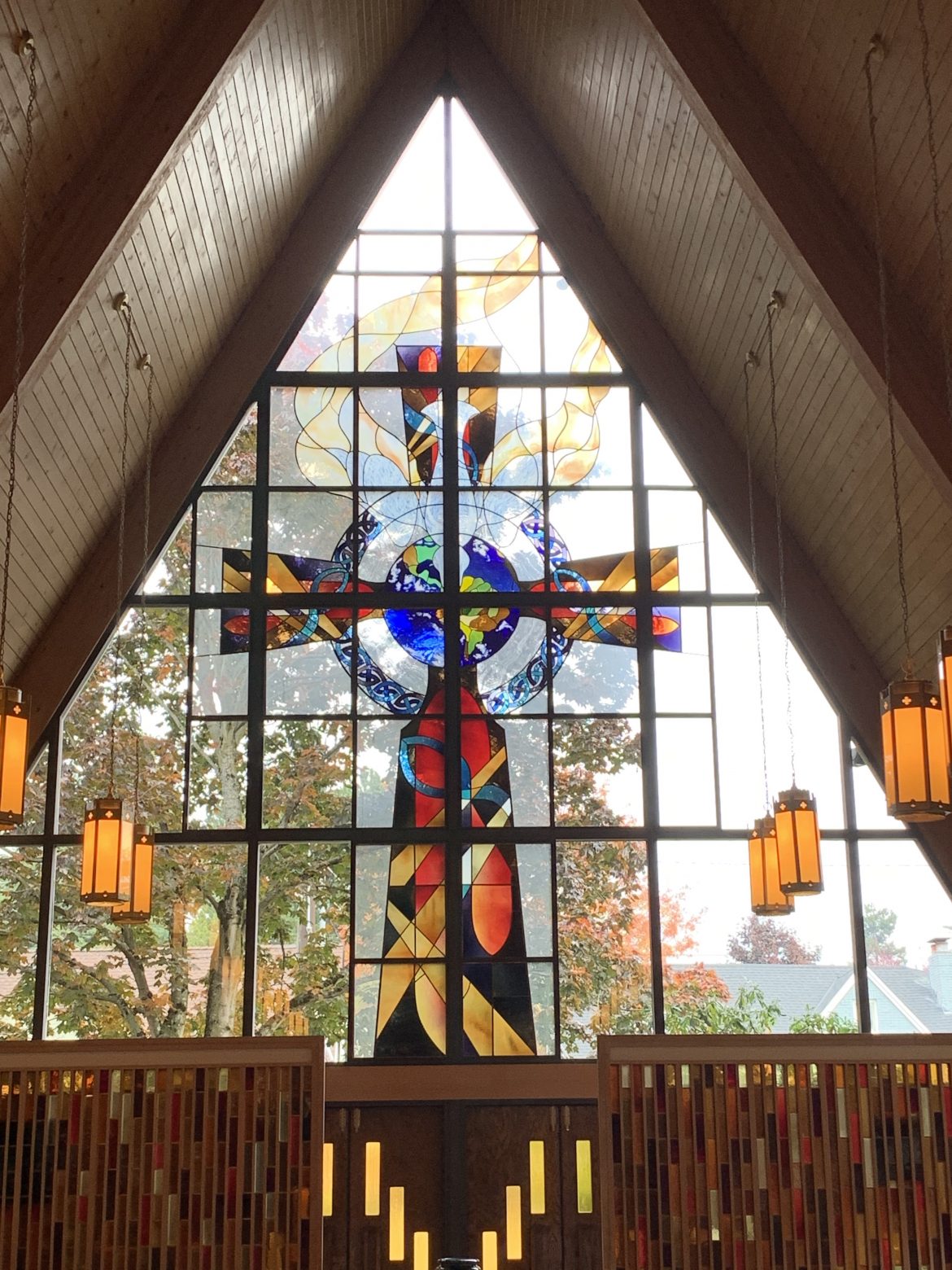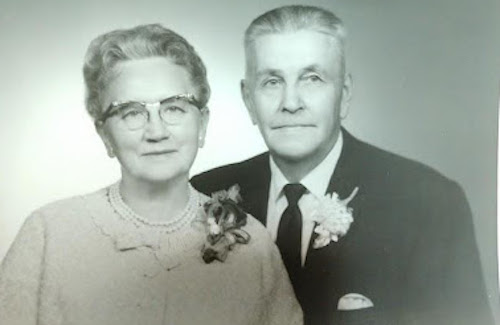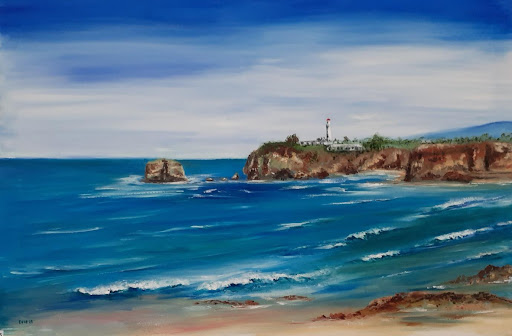by Laurie Klein
Looking at or holding an object, real or imagined,
may enhance your ability to focus. —Christine Sine
Reading those words, my curiosity revs. In her book The Gift of Wonder, Sine recommends pausing to mindfully handle a smooth stone, a seashell, or a pocket cross. She advises quiet attention—even affection. She enjoys running her mother’s opal necklace through her hands.
Long ago, my mother bequeathed me her vintage perfume bottle collection. I choose the iconic bottle that once held Evening in Paris. About the size of a silver dollar, the cobalt glass is fetchingly capped in black, its tiny throat wreathed with a black-and-gold tassel.
I stroke the deep blue contours and find it calming. A connection to Mom. And to memories, for which I give thanks.
Over succeeding days, spontaneous comparisons arise and become prayers.
Your love encloses us. Blessed be your name.
Your life lavishes our lives with the fragrance of Christ. Thank you.
Your light passes through us to others. May it ever be so.
In the little bowl of my palm, the glass warms to my touch. Each smoothing gesture ushers me toward increasing tranquility. And no wonder. Gentle, repetitive bodily movement impacts our hormonal responses to stress.
I give it the acid test. When feeling frazzled over vitriolic headlines (or looming deadlines), I press the vial against the life line that creases my palm. I ponder my mother breaking the seal, dabbing scent at her pulse points.
I picture the woman breaking the seal on her heirloom alabaster jar (Mark 14:3, among others).
Life lines from the Word come to mind.
“Nevertheless, the firm foundation of God stands, having this seal, ‘The Lord knows those who are His’” (2 Timothy 2:19).
Our calling, too, through no effort of our own, is sealed for God’s purposes. “In Him, you also, after listening to the message of truth, the gospel of your salvation—having also believed, you were sealed in Him with the Holy Spirit of promise, who is given as a pledge of our inheritance, with a view to the redemption of God’s own possession, to the praise of His glory” (Ephesians 1:13-14).
I miss my mother and tears brim . . .
“[O Lord,] You keep track of all my sorrows. You have collected all my tears in your bottle” (Psalm 56:8).
Mom’s keepsake has one other feature: an incised pentagon, a miniature house. It reminds me of my loved ones in heaven. Brushing my thumb across the roof and walls, I imagine their delight within God’s incomparable household. I daydream about the place being prepared for me.
But there’s a challenge as well.
I am also invited to embrace change via God’s refinement process, like wine being “poured from vessel to vessel” lest it settle on its lees (Jer. 48:11). Historically, that process ensured the wine’s flavor, bouquet, and integrity.
When I was little, Mom displayed her perfumes and colognes on a mirrored tray. Wanting to surprise her one year, I edged into her room with an empty jelly jar. Then, probably holding my breath lest I spill something, I tipped precious drops from each vessel into my jar. Think Eau de Everything.
She could have blown, scolded me up one side and down the other. Those fragrances were costly, and her anger would have been justified.
Instead she touched my hand. “What a perfect gift! No one in the whole world will ever have perfume like mine.” Then she dabbed it on both our wrists with a smile I still remember.
My mother’s acceptance and delight in that pivotal moment—so reflective of God’s love for us all, in every moment—continue to grace the little bowl of my palm.
**
Is there a smooth object of glass, ceramic, or metal that pleases your senses and personal history? Perhaps natural elements appeal more to you: a glossy chestnut, a striped river stone, the gem in a legacy brooch.
In my next post, I’ll share another dimension of meditatively using a valued object. I hope you’ll join me.
As mentioned above, Christine Sine’s book The Gift of Wonder is a welcome respite in our harried world. Journey along with Christine as she guides you through creative practices to recapture your delight in God. Learn more here, or click here to purchase a book from our shop!
Last week, I was inspired by the incredible photos NASA released; totally mesmerized – like many of us. These stunning photos released by NASA were of images taken by the Webb Telescope. What totally caught me by surprise was how deeply spiritual this experience was. Every time I closed my eyes one of the images danced across my vision and over the weekend I spent quite a bit of time immersed in the immensity of the presence of God they opened me to.
I breathed in and out aware of the presence of God in me around me and out into this incredible universe.

main image deep field smacs0723 1280
I breathe in the immensity of this great expanse, galaxies that appear no larger than pinpricks of light. Landscapes of “mountains” and “valleys” speckled with glittering stars rivet my attention. This is where stars are born. I almost forget to breathe. How much more immense and inspiring is the God who created them.

Where stars are born
I breathe in the beauty and majesty of colours and shapes and I breathe out, imagining how much more beautiful and majestic is the God who created all this.
I breathe in again and remember that I am no more than a tiny speck in God’s vision. I am humbled by my insignificance, but as I sit quietly with my eyes on these remarkable images I am aware of the embrace of divine love.
I breathe in once more and run a cup of sand through my fingers aware that I am no more than one grain of sand in that cup. Insignificant yet deeply loved. I savour the wonder and immensity of this love. It fills not just me but every organism of this vast creation. Each grain of sand, insignificant but beautiful, an important part of a greater beauty of God’s creating. I think of the many uses of sand – millions of grain to form a sweeping beach of great beauty, protecting vulnerable coastlines from destruction, sculpted into beautiful designs, used in building materials, and in our gardens to create richer soil.

I read through this blessing by Jeff Chu:
May the magnitude of the universe
summon in us an appropriate smallness.
May the majesty of distant galaxies stir in us true humility.
May the light of faraway constellations remind us of the holy fire within
May you remember that the same wild creativity
that kindled the stars also etched beauty in your body.
May our awe yield hope.
May our gratitude inspire grace.
May our wonder stir love.

Now I take a few more deep breaths in and out and close my eyes. These photos incredible as they are, are but a small glimpse into the wonder of our God. I sit and savour that love. It surrounds me, and fills every fibre of my being.
Breath of life,
Breath of love,
Breath of my body.
Each breath a wondrous spark of life,
Filling me with the glory of your light,
Photo credits: NASA ESA, CSA and STScl
 Digging Deeper: The Art of Contemplative Gardening
Digging Deeper: The Art of Contemplative Gardening
Want to savor the small? Christine Sine’s latest book is packed full of contemplative wisdom and inspiration for creating your own meditative garden. You don’t need a large plot of land or even a proper pot – any vessel will do. Whether a beginner or an expert gardener, enjoy the process alongside Christine! Click for more details!
Such beautiful weather these days I forgot to post this yesterday. Still time to enjoy it though.
A contemplative service with music in the spirit of Taize.
Carrie Grace Littauer, prayer leader, with music by Kester Limner and Andy Myers.
Permission to podcast/stream the music in this service obtained from One License with license #A-710-756. Thank you for praying with us!
all words and photos © by June Friesen, scripture from The Message translation
National Parents Day is a day that encourages people to honor their heritage, particularly their parents. One may ask or even wonder, why do we have to set aside a special day to honor parents. So often in today’s world and particularly in America we often fail to appreciate the value of having good parents. Then one may ask: what does a good parent look like? What may be some characteristics that they practice? Some may even ask – aren’t all parents good? Do not all parents care for their children?
The first photo is my one set of grandparents. I remember how my grandmother made time for me. She would include me in baking some yummy sugar cookies which we decorated with all kinds of sprinkles. Another favorite activity was coloring at her house. She always had cool colored pencils she let me use as well as a large box of 48 crayons. And she would patiently sharpen the crayons as they wore down so that it was easy to color inside the lines. There were times too when she sat down with me and colored. By her investing time with me and making me feel special I grew in my love and appreciation for her and often would make special little things for her. My mother and father also made time for doing some special things with me and for me. While we worked hard on the farm there were still fun activities that were included like day trips and picnics especially on Sunday after church as well as some vacations from time to time to visit people.
In today’s world it is hard to be a parent as there are so many demands on one’s time as well as energy. It is often hard to find the time or opportunity to make special times for parents because of our mobile society. So many families, ours included, find the parents living often hundreds and or thousands of miles from their children and grandchildren. So it can be challenging to make days like today be particularly special for one’s parents. And yet so often just having a friend or two that one can share with can be the most helpful support. When our children were young, we spent time together with them doing special things that they enjoyed. Some of those things were going to the Farmer’s Market and a favorite treat was cheese curds. We lived only about an hour drive from Niagara Falls and they not only loved picnicking, but also watching the water thunder over the rocks to the depths below. As well, they loved watching the ships being lifted and lowered in the locks at the canal(see photos below). Going to the apple orchard and picking up windfall apples, going to the maple tree farms in spring and watching the sap drip into the buckets, then gathered and processed into maple syrup were a few of their favorite outings. These were times we set aside so that our children knew they were the focus of our attention and we embraced doing some of the things they enjoyed. Today our sons are adults and we still choose to make memories with them as well as including our daughter-in-law and granddaughters. Just this past Christmas we were all together and our sons made us feel special as they made it possible for us all to be together. I cannot emphasize enough that when we choose to make family time important it becomes the seed that grows into something that is carried on and reproduced from one generation to another. We have also chosen to keep these memories going with our granddaughters and have done some special things that have included them. In turn as they are now teenagers they are already thinking of ways to make things special and honoring their parents as well as their grandparents.

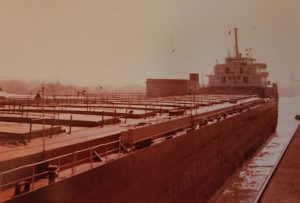

God created parents in the beginning of time. While there are not a lot of stories included in the Scriptures about parents and children, we do find somewhere there was special mention given to how the parent/parents cared for their children or a child. I think of the parents of Moses who hid him from the Pharoah. I think of Hannah who taught her son well and then encouraged him to become a helper at the Temple. And there was also Mary who cared for Jesus until he became old enough to be on His own. We do not read much in the Scriptures about how the parents may have been honored yet God instructed His people including you and I to honor and respect our parents.
Hebrews 12: 4-11 … have you forgotten how good parents treat children, and that God regards you as his children? My dear child, don’t shrug off God’s discipline, but don’t be crushed by it either. It’s the child he loves that he disciplines; the child he embraces, he also corrects. God is educating you; that’s why you must never drop out. He’s treating you as dear children. This trouble you’re in isn’t punishment; it’s training, the normal experience of children. Only irresponsible parents leave children to fend for themselves. Would you prefer an irresponsible God? We respect our own parents for training and not spoiling us, so why not embrace God’s training so we can truly live? While we were children, our parents did what seemed best to them. But God is doing what is best for us, training us to live God’s holy best. At the time, discipline isn’t much fun. It always feels like it’s going against the grain. Later, of course, it pays off big-time, for it’s the well-trained who find themselves mature in their relationship with God.
I included these verses from Hebrews as it emphasizes that as we train our children they will grow in respect for us, and I might include that it will also include respect for other adults as well. Then it links how this respect will translate into our relationship with God as well. In the Scriptures it talks about God being our Father and when we grow up with a home where we are taught to respect and honor our parents and other adults it will spill over into enhancing our relationship with God.
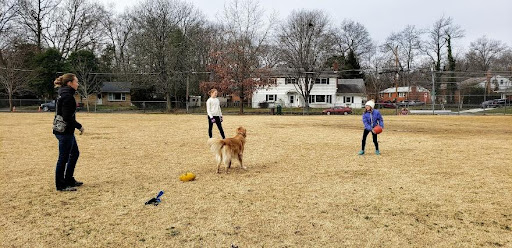 EMBRACING THE GIFT OF LIFE
EMBRACING THE GIFT OF LIFE
One may ask – how can I embrace this gift of life that I have?
How can I really say ‘thank you’ to my parents?
For some it may be a struggle
And for others it may seem to come so naturally.
As one moves through life from beginning to the end –
There is the time of full and complete dependency upon another –
This is where one’s parents fill a vital role
As they provide food regularly that is readily digestible for our age,
They provide shelter from the harshness of the climate at times,
They provide opportunity to learn how to develop relationships,
They help us learn how to properly care for our bodies in all aspects –
Physically, mentally, emotionally and spiritually.
They help us learn how to protect ourselves from harm and danger,
They also help us to get the education needed for life in this world and beyond,
Education of our minds so we can make a difference in the world
As well as provide for our needs by using our abilities and talents for good work.
Today let us be encouraged to say thank you to our parents –
For some of us, our parents are no longer here on earth,
But we can still express our gratitude to God for His blessing to us,
We also can let our children, family and friends know the great impact our parents had on our lives and the world.
For some of us our parents live thousands of miles away,
But we now have phones and computers with video chat
Allowing us to do what is called ‘facetime’ –
What an incredible opportunity to honor parents and grandparents from afar.
There is the gift of blessing –
Something that is often missed in today’s world,
But I challenge us today –
Send a prayer of blessing first to God for your parents –
And then drop a text, an email, a phone call –
And let them know –
How thankful you are that they have blessed you with life
As well as raised you and gave you wings to fly and make a difference in the world.
Happy National Parents Day –
Bless the world with your life – and receive the blessings gifted to you today for being the best parent you can/could be. Amen.
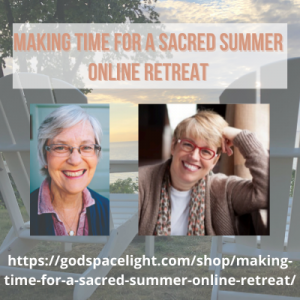 Enjoy A Sacred Summer
Enjoy A Sacred Summer
Summer is here! Let Christine Sine and Lilly Lewin guide you through the symbols of summer into sacred refreshment. Enjoy 180 days of access to retreat at your own pace. All the details can be found in our shop!
In the Lectionary this Sunday, the Gospel Reading is Luke 11:1-13 where the disciples of Jesus want him to teach them how to pray. They have seen Jesus do a lot of praying on his own, but now they too want a way to pray. So Jesus gives them a way to pray that we now have as the Lord’s Prayer.
Before you read the passage, consider who taught you how to pray? How did you learn?
My first memories of prayer are at bedtime: “Now i lay me down to sleep, I pray the Lord my Soul to Keep, May angels watch over me through the night, and help me do, what is right. AMEN” The version that my husband remembers included the line “if i should die before I wake, I pray the Lord my Soul to take.” YIKES! That’s a bit scary if you are a little kid!
What are ways that you enjoy praying today that may be very different from how you were taught?
My favorite ways to pray these days include praying for my neighbors and my neighborhood as I walk my dog Jake, and praying while I make my coffee and unload the dishwasher in the morning at my Coffee Prayer Station. And most of you know I love praying with my coffee cup too!

coffee prayer station
Did you grow up praying the Lord’s Prayer in church? What memories do you have of the Lord’s Prayer?
READ the Passage a couple of times in each version …what do you notice that you haven’t seen in this scripture before today? What does Jesus say about how to pray?
“Master, teach us to pray just as John taught his disciples.”
So he said, “When you pray, say,
Father, Reveal who you are. Set the world right. Keep us alive with three square meals. Keep us forgiven with you and forgiving others. Keep us safe from ourselves and the Devil.”
Then he said, “Imagine what would happen if you went to a friend in the middle of the night and said, ‘Friend, lend me three loaves of bread. An old friend traveling through just showed up, and I don’t have a thing on hand.’
“The friend answers from his bed, ‘Don’t bother me. The door’s locked; my children are all down for the night; I can’t get up to give you anything.’
“But let me tell you, even if he won’t get up because he’s a friend, if you stand your ground, knocking and waking all the neighbors, he’ll finally get up and get you whatever you need.
“Here’s what I’m saying:
Ask and you’ll get; Seek and you’ll find; Knock and the door will open.
“Don’t bargain with God. Be direct. Ask for what you need. This is not a cat-and-mouse, hide-and-seek game we’re in. If your little boy asks for a serving of fish, do you scare him with a live snake on his plate? If your little girl asks for an egg, do you trick her with a spider? As bad as you are, you wouldn’t think of such a thing—you’re at least decent to your own children. And don’t you think the Father who conceived you in love will give the Holy Spirit when you ask him?” LUKE 11:1-13 THE MESSAGE
He was praying in a certain place, and after he had finished, one of his disciples said to him, “Lord, teach us to pray, as John taught his disciples.” 2 So he said to them, “When you pray, say:
Father, may your name be revered as holy. May your kingdom come. Give us each day our daily bread. And forgive us our sins, for we ourselves forgive everyone indebted to us. And do not bring us to the time of trial.”
5 And he said to them, “Suppose one of you has a friend, and you go to him at midnight and say to him, ‘Friend, lend me three loaves of bread, 6 for a friend of mine has arrived, and I have nothing to set before him.’ 7 And he answers from within, ‘Do not bother me; the door has already been locked, and my children are with me in bed; I cannot get up and give you anything.’ 8 I tell you, even though he will not get up and give him anything out of friendship, at least because of his persistence he will get up and give him whatever he needs.
9 “So I say to you, Ask, and it will be given to you; search, and you will find; knock, and the door will be opened for you. 10 For everyone who asks receives, and everyone who searches finds, and for everyone who knocks, the door will be opened. Is there anyone among you who, if your child asked for a fish, would give a snake instead of a fish? Or if the child asked for an egg, would give a scorpion? If you, then, who are evil, know how to give good gifts to your children, how much more will the heavenly Father give the Holy Spirit to those who ask him!” LUKE 11:1-13 NRSV
Do you feel like it’s easy or hard to ask for what you need?
Do you feel like it’s easy or hard to keep asking for something in your prayers? Are you like me and feel like it’s not ok to just keep asking for the same thing? Jesus seems to say it’s TOTALLY FINE to keep asking. What do you notice comes up for you in this?
“This is what Jesus told them when they asked him to teach them to pray. Pray like kids at Christmas, knowing that you are loved, knowing that you will be heard, knowing that your parents are longing to bless you! And let your confidence, your trust and your excitement grow in the asking! Be persistent, if you like! -not in the nagging manipulation of someone wheedling his own way, but just in the excitement of a child asking “Are we there yet? Are we there yet?”” Dr Ken Baker.
How do you feel about prayer after reading this quote by Dr. Ken Baker? I really love this image of prayer! Praying like kids at Christmas knowing that I am LOVED!!!! READ THE REST OF HIS POST HERE
What are you knocking about or seeking for right now? What door do you want/need to be open? Talk to Jesus about this!

Knock and the Door will be Opened
PRACTICE :
Find some BREAD or a bagel/roll…. pray with the Lord’s Prayer
Give us this day our Daily Bread…Consider how Jesus has provided for you this week. Take time to be thankful.
Forgive us as We forgive others …How do you need to be forgiven today? Ask Jesus to forgive you.
Now consider who you need to forgive. Take some time to pray for that person or people.
Take time this week to pray against the evil in our world.
Pray with the Lord’s Prayer from the New Zealand Book of Common Prayer
Eternal Spirit, Earth-maker, Pain-bearer, Life-giver, Source of all that is and that shall be, Father and Mother of us all, Loving God, in whom is heaven:
The hallowing of your name echo through the universe! The way of your justice be followed by the peoples of the world! Your heavenly will be done by all created beings! Your commonwealth of peace and freedom sustain our hope and come on earth.
With the bread we need for today, feed us. In the hurts we absorb from one another, forgive us. In times of temptation and test, strengthen us. From trials too great to endure, spare us. From the grip of all that is evil, free us.
For you reign in the glory of the power that is love, now and for ever. Amen. –The New Zealand Book of Prayer | He Karakia Mihinare o Aotearoa.
When you make your toast or have a sandwiches this week, remember to thank Jesus for his abundant provision. When you knock on a Door this week, know that Jesus is opening doors for you and wants you to pray with the hope filled spirit of a little child! You are greatly loved by a God who hears you!

Pray with your Toast
LISTEN to the Lord’s Prayer in Song:
©lillylewin and freerangeworship.com
It seems so far away, and yet “Christmas in July” can be a time to plan ahead for the upcoming season of Advent and Christmas. Check out the many resources Godspace has to offer in our shop!
Editors Note: Each Thursday in July we are having an Artful Julybilee – a celebration of art through the exploration of our current theme. We have many talented artists and authors and will be featuring several each week culminating in a booklet at the end. Come explore the facets of what it means to be Living as Christ Lived: Towards Justice, Love, and Peace for All Creation through the lens of art. You can find Part One Here: Towards Peace For All Creation and Part Two Here: Towards Love For All Creation. You can continue on to Part Four Here: Living As Christ Lived or go straight to the beautiful compilation booklet in our shop – free to download!
Featured image: A painting of the Aireys Inlet Lighthouse by Evelyn Heard
The Lighthouse
by Evelyn Heard
The Aireys Inlet Lighthouse on Australia’s Great Ocean Road has always been a favourite of mine to paint in different mediums.
A lighthouse has two primary functions: to warn passing ships of danger; and to serve as a navigational aid for the same ships. The light not only illuminates the surrounding area, it also alerts others of an unmoving source nearby. In the same way that a lighthouse can help a ship find its bearings when traversing uncertain waters, so there are times when others cross our paths for a brief moment, but find some assurance in our presence, our words, or a simple affirmation.
But it is also important to remember that lighthouses need to be maintained. For continuous service, they need care and attention, though there may be a long time when its presence seems irrelevant, it needs to be ready for that unforeseen moment of a passerby … a reminder of an important need in our own lives, never more possible and necessary than the times when we consider ourselves redundant, or irrelevant.
Take some time to reflect on the impact our presence in the world makes to those passing by … and consider what (or who) it is that we look to that keeps us feeling safe, nurtured and guided along life-giving pathways.
John 8:12 Jesus said “I am the light of the world. Whoever follows me will never walk in darkness but will have the light of life”
Prayer
Lord, we see so much turbulence around us. Some anticipated, whilst there is much that came upon us unexpectedly. We thank You for providing us with a source of light and guidance through such times. Whether the sun is shining or the storms are circling around us, continue to remind us that Your light will never go out. Remind us that our own light can be a source of peace and hope to those we come into contact with. Remind us to tender our own resources in this journey, not knowing when we might be called upon to guide another through uncertainty.
Light of the world, you have guided our paths thus far. May Your light continue to illumine our pathways. Amen
5:00 Am
by Laurie Klein
5:00 a.m.
“Then the moon will be abashed …” —Isaiah 24:23 NASB
Awash in crimson light,
my thoughts drift
eastward, over the sea:
it’s midafternoon
in Ukraine. Unspeakable
din. Smoldering rubble.
Heart-rain. Thin stammers
of soil, where peril stalks
every neighborhood and
women on twig feet
scavenge mementos of home.
God forgive me, I itch
for the braided smell
of rope, the oiled pulleys
of not my war, the weighty,
black velvet swing
of a curtain I can close—
such is my appetite
for relief, my beggared
capacity to take in
the news, God help me,
to abide: trusting, helpless.
Ruler of Night: The ruins. The wrenching cries of your children. And I am so tired of catastrophe. Mea culpa, I distract and neglect and self-protect. Forgive me. Transform my dread for this world into compassion that overflows into action. Amen.
The Grieving Heart
by Lilly Lewin: “‘The Grieving Heart’ Mixed medium piece inspired by my prayers for healing for this broken world and my heartbreak and sorrow over the division, violence, racism and suffering in our country and our world. And inspired by the continuing suffering due to the pandemic.”
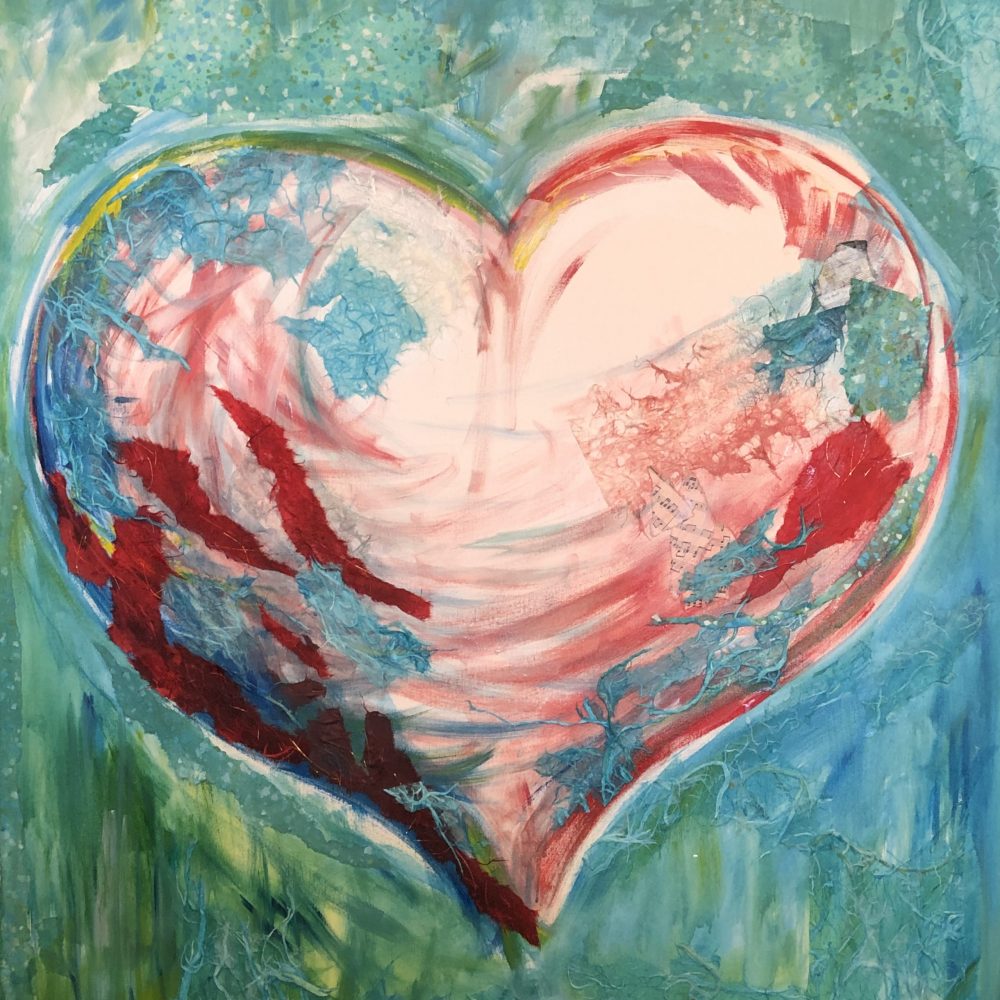 What’s in your heart today?
What’s in your heart today?
Mine?
So much sadness
So much heartbreak.
I need healing, We need healing.
We need the hope of love that heals.
We need to harden not our hearts today, but lean into love!
We need to receive Love!
Loving our selves so we can
Love our neighbor!
Believing we are loved so we can love rather than judge and hate!
Asking God/Jesus for help because we cannot do it on our own!
Asking God/Jesus to help us love, especially to help us love our enemies in the midst of everything!
Learning just how hard it is to listen in order to love!
And loving those we don’t understand or who are so different! Help us to Love!
Help us to Love Anyway!
Help me Jesus! Help us Jesus!
You are our only hope … you are Love!
Amen
A Good Neighbor
by John Birch
A few weeks ago, I began looking a little closer at the familiar story of the Good Samaritan in Luke 10, to see how it could form the basis of a Bible study covering broad areas such as justice, faithfulness, fairness, and love. The parables that Jesus told were always intended to be more than just stories with a simple message. They were for taking away and pondering over, looking at the detail and seeing how they might speak into life and faith. This one is a case in point, with a badly injured body on the road, ignored by a priest and Levite for reasons of fear or religious observance (becoming unclean touching a dead body), and helped by a Samaritan, an outsider to the Jews and perhaps the unlikely hero of this story. And that’s nice, the outsider becoming the good neighbour.
But the story doesn’t end there. This good neighbour not only treated the injured man at the scene but took him to the nearest inn and cared for him overnight. Then he gave the innkeeper the equivalent of two days wages for a working man, asking only that he kept an eye on the patient until be returned, whereupon he would reimburse any additional expense.
Now to me, that’s the crux of this parable; the being there, showing compassion, making sure this injured man might have time to fully recover. This is indeed a good neighbour, and that’s how I like to think of him, not as an outsider, the Samaritan, but simply as a good neighbour. Here was someone who knew the value of life and love. It was a natural, generous, possibly even sacrificial outpouring of love that Jesus described. And that speaks deeply to me of the way I interact with people in the small Welsh town where I live, and the bigger world where my more distant neighbours are struggling because of injustice, conflict, poverty, hunger, and so many other issues.
What does it mean to be a good neighbour?
Show me Lord, how to love
my neighbour. Not the one
I get on really well with,
go for a drink and enjoy
time out with. Not the one
I see at church each week,
and sees the world as I do,
generally. Not the one
who lives along the street
with whom I share my thoughts
about the weather with.
Show me Lord, how to love
the neighbour I avoid, the one
I struggle with, whose views
and outlook on life I disagree
with, whose lifestyle seems
so different to mine. Show me
Lord, how, as you loved others,
including even one such as me,
so I can hold out these hands
of friendship and love to all
who in your eyes are neighbours,
your children, truly loved by you.
Two Seas
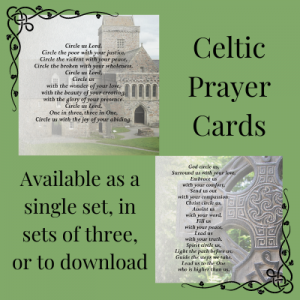 Celtic Prayer Cards include 10 prayers inspired by ancient Celtic saints like Patrick or contemporary Celtic writers like John O’Donohue. A short reflection on the back of each card will introduce you to the Celtic Christian tradition, along with prayers by Christine Sine and beautiful imagery crafted by Hilary Horn. Celtic Prayer Cards can be used year-round or incorporated into various holidays. Available in a single set of 10 cards, three sets, or to download.
Celtic Prayer Cards include 10 prayers inspired by ancient Celtic saints like Patrick or contemporary Celtic writers like John O’Donohue. A short reflection on the back of each card will introduce you to the Celtic Christian tradition, along with prayers by Christine Sine and beautiful imagery crafted by Hilary Horn. Celtic Prayer Cards can be used year-round or incorporated into various holidays. Available in a single set of 10 cards, three sets, or to download.
by Tom Sine
Before the Covid Pandemic abruptly arrived, mainline Protestant and Catholic churches – including a growing number of evangelical churches – were experiencing a slow decline in attendance. Particularly of the generations Gen Y and Z, the under 50. Since Covid arrived, Pew Research estimates a surprising 30% decline in church attendance. Church leaders report they are also experiencing a dramatic decline in giving and volunteering. This continued decline is not only an alarming concern for the western church, but globally it is a greater concern for those all over the planet who are benefiting from the care and change-making western churches have offered.
Is it possible that followers of Jesus in the western church in this time of crisis could be motivated by first-century followers of Jesus to up our game, increasing the vitality of our faith in times like these? I suggest you invite a small group in your church to read Making Room: Recovering Hospitality as a Christian Tradition written by Christine D. Pohl. It not only describes how those first-century followers of Jesus created a surprising number of expanding communities from many different national and economic backgrounds, but this first community also gave a very high commitment to taking daily time to be present to God and weekly time to empower those in need. This was a new form of community the world had never seen before!
“Writers in the New Testament portray Jesus as a gracious host, welcoming children, prostitutes and tax collectors and sinners into his presence. Such welcome startled and annoyed those who generally viewed themselves as the preferred guests at gatherings. Remember this Jesus experienced the vulnerability of the homeless infant, the child refugee, the adult that had no place to lay his head, the despised convict.” – excerpted from Making Room
Remarkably this new religious movement didn’t begin with the erection of religious buildings. Rather it began with a large number of people from very different nations and cultures creating new living communities and villages of devotion and care for the vulnerable. Together they created new ways of living that were strongly committed to the ways of Jesus including caring for those in need. These first Jesus followers created networks of living communities where they not only worshipped God but sustained and cared for their families. These first Jesus followers also reached out to those in need in ways that had never been seen before. Wouldn’t this be a great time for declining churches to invite those who might be inspired by these first-century disciples to put first things first?
Recently I had the opportunity to work with a Presbyterian church in Washington State that was struggling not only with declining attendance and giving in these pandemic times, but virtually no families and very few young people. Their leadership team read my most recent book that was co-authored with Dwight Friesen entitled: 2020s Foresight: Three Vital Practices for Thriving in a Decade of Accelerating Change. Essentially it outlines how congregations can in these pandemic times both do a better job of anticipating new waves of change, and creating new ways of living. We can create new ways to be disciples of Jesus that looks much more like those 1st-century compassionate communities of Jesus.
During a two-day workshop, we offered a Futures Creativity Workshop to not only reduce doubling decline but to also recover some of the vitality of those informal communities of Jesus that made such a difference in the lives of those in their troubled communities in the troubled times in which they lived. Let me tell you about one church that made a decision to go for their best.
A group of leaders in a Presbyterian church, here in Washington, decided in March to go for their best. What they created was a group called “ Going for Your Best!” That group focused on creating a strong new community that committed to:
 Did you know? If you visit our Seasons and Blessings Resource Page, there is a whole section on Back-to-School resources listed under the Autumn column! We have gathered prayers and practical resources to help you mentally and spiritually prepare yourself and your kids for the school year ahead. You might also enjoy checking out this free downloadable book of prayers for children, found in our shop.
Did you know? If you visit our Seasons and Blessings Resource Page, there is a whole section on Back-to-School resources listed under the Autumn column! We have gathered prayers and practical resources to help you mentally and spiritually prepare yourself and your kids for the school year ahead. You might also enjoy checking out this free downloadable book of prayers for children, found in our shop.
As an Amazon Associate, I receive a small amount for purchases made through appropriate links.
Thank you for supporting Godspace in this way.
When referencing or quoting Godspace Light, please be sure to include the Author (Christine Sine unless otherwise noted), the Title of the article or resource, the Source link where appropriate, and ©Godspacelight.com. Thank you!




